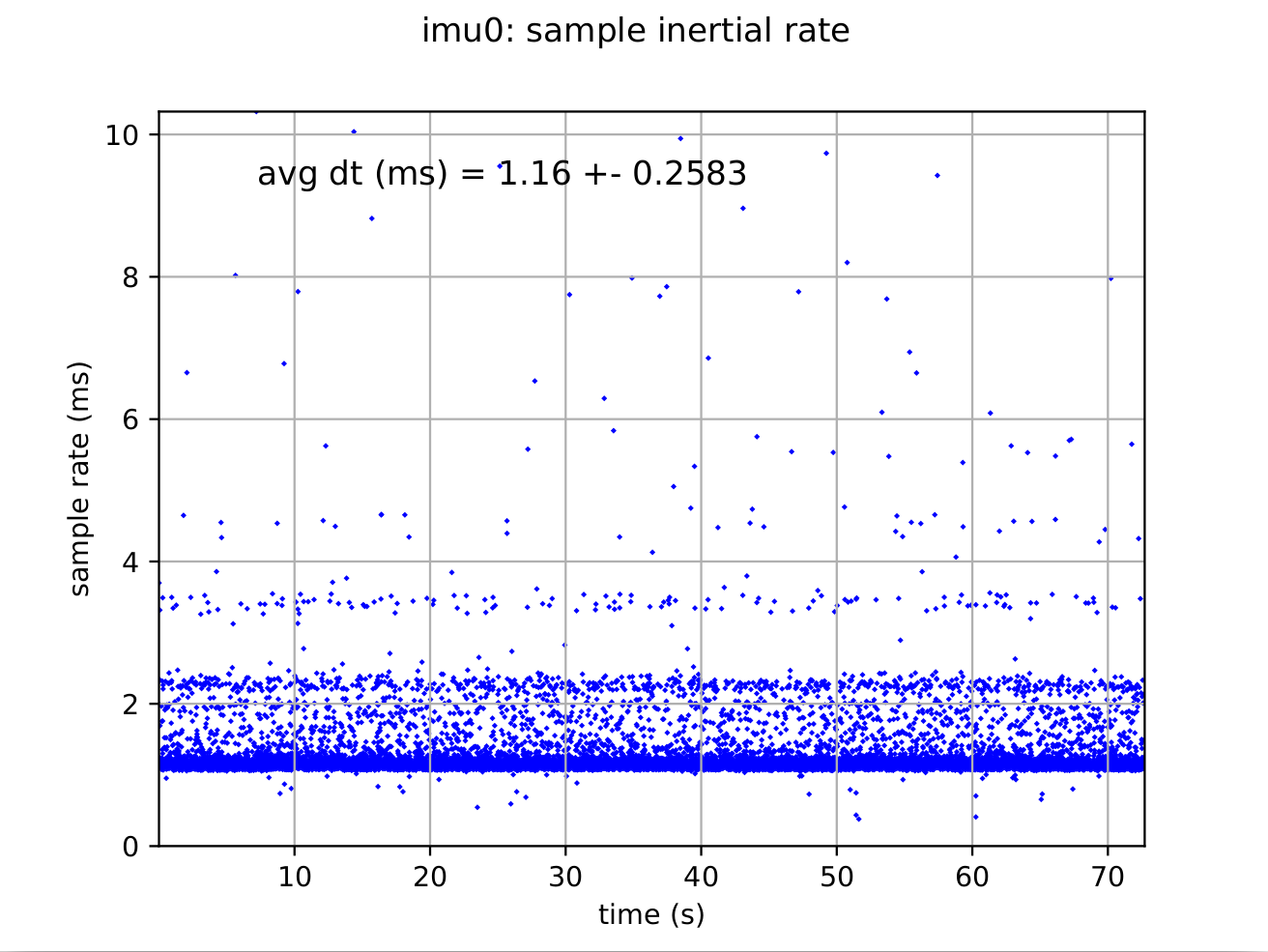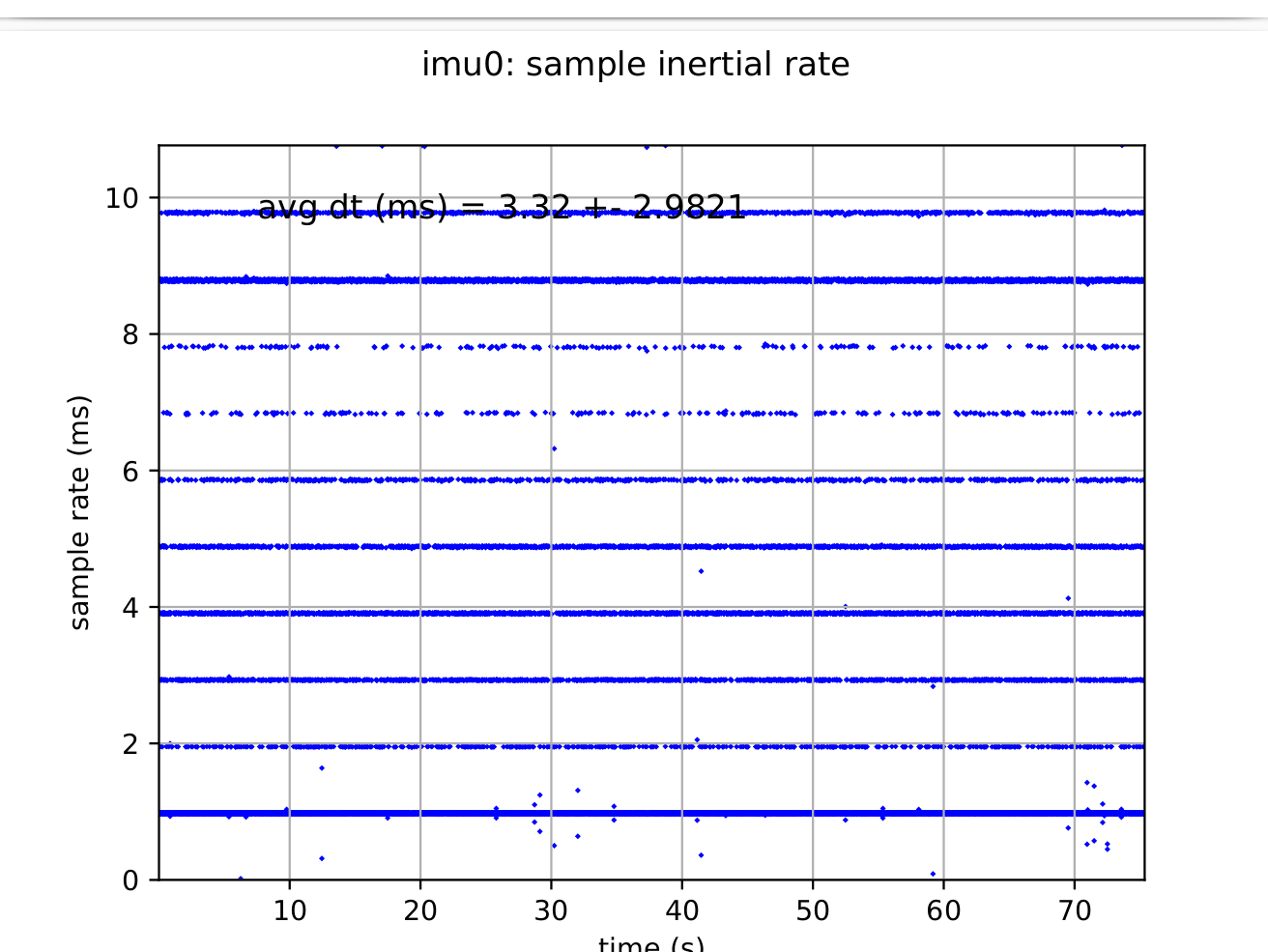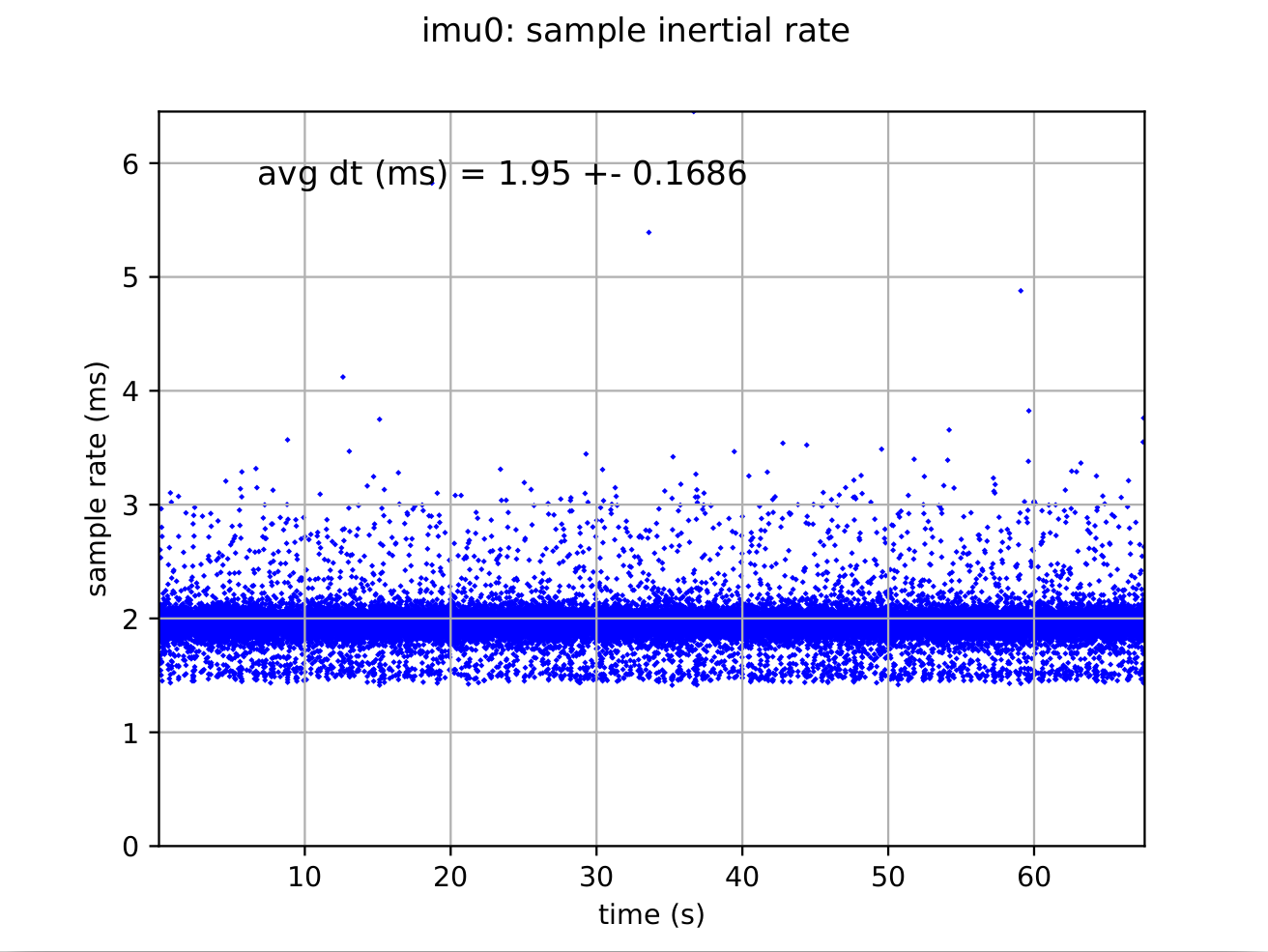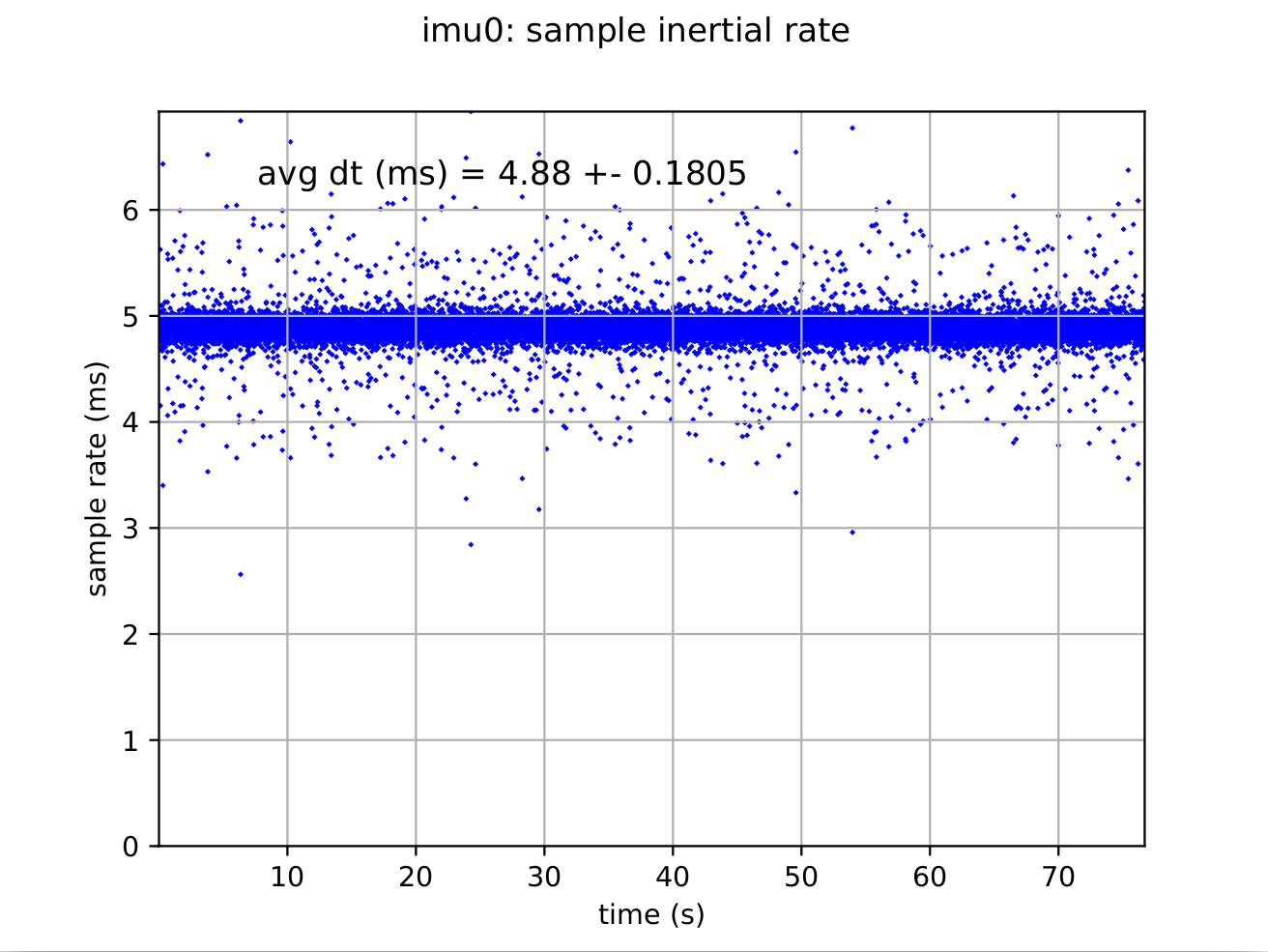voxl-open-vins-server How to Use, Overall Questions, ROS/ROS2 Findings
-
@zauberflote1 Hi, that open-vins package is in early alpha stages. So, it's completely undocumented and we aren't supporting it at this point. We'll look into your question though and see if we can find something
-
@Moderator Thanks,
a Gitlab repo link would suffice in case documentation is not available. -
Hi there, yes, unfortunately the repo for OpenVINS is still under construction as it's under active development by the ModalAI team. We'll have it available soon
voxl-open-vins-server does a similar process to the ROS implementation when using camera data--in order to sync frames, data comes in a stereo-type packet. During camera calibration, instead of Kalibr, we are using our own
voxl-calibrate-cameraimplementation that comes with the SDK. And as needed, one can turn off the stereo output in voxl-camera-server and calibrate each camera individually. That would be best on the ROS side as well where you can use split the images from camera-server like this before publishing to Kalibr (where 2 topics work best for openvins), then calibrate independently.You could try voxl-calibrate-camera instead and yes it will output opencv-format intrinsics where you can copy the needed values into the ROS launch file. We create extrinsics using mechanical design. In both cases, OpenVINS will refine them at runtime during the first few seconds of operation.
You can upgrade to the latest dev version via editing your
/etc/apt/sources.list.d/modalai.liston voxl2 to point to the dev repo. Then runapt update && apt upgrade voxl-open-vins-server. Looking at the /etc/modalai/voxl-open-server.conf may give you some ideas on how the roslaunch file can be setup as well. -
@Cliff-Wong Hey Cliff,
Thanks for your reply! I have solved the issue. It's a bit of a long solve, but I'll outline the main steps.
For proper calibration IMU-Cam calibration, we cannot have a burst of measurements like we have when running the IMU in FIFO mode. Therefore, the best way to get around this is to use IMU in basic read mode. Also, I was able to achieve good VINS results running the IMU at 500Hz and 200Hz. I opted to remodel the IMU server to have it "fully" in ROS without the need for MPA, while maintaining the FIFO scheduler for "RT". This decision reduced the sampling jitter by a lot (about 50%). Still, jitter is present, while looking at the core load distribution, I noticed that sometimes all the processes get allocated to core 7 until it bounces back to another favorable core distribution, creating a tiny lag on the system and, consequently, causing the jitter -- of course, this is a hypothesis. I was wondering if you had faced the same situation and if you or your teammates have thought of the possibility of restricting specific cores for real-time operations, which would avoid this weird allocation.
Here are the results:




Best,
--ZBFT -
@Cliff-Wong
Image Description:
1)BsicRead Server Using MPA-ROS
2)Classic Server and MPA-ROS
3)IMU ROS ~500Hz
4)IMU ROS ~200Hz -
@zauberflote1
Forgot to mention that a way to reduce jitter is also by checking if the interrupt DTA Rdy is true before reading, avoiding reading past info from the registers.
Sorry for the many messages -
@zauberflote1 hei! we are facing a similar issue, do you have a link for your implementation? thanks!
-
@tiralonghipol and community
Here it is,
https://github.com/zauberflote1/voxlSyncVINS -
@zauberflote1 amazing, thank you
-
@zauberflote1 said in voxl-open-vins-server How to Use, Overall Questions, ROS/ROS2 Findings:
decision reduced the sampling jitter b
Thank you for sharing your insights and great work!